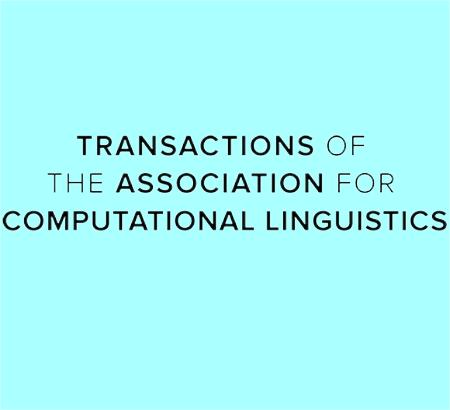Communication Drives the Emergence of Language Universals in Neural Agents: Evidence from the Word-order/Case-marking Trade-off
IF 4.2
1区 计算机科学
Q2 COMPUTER SCIENCE, ARTIFICIAL INTELLIGENCE
Transactions of the Association for Computational Linguistics
Pub Date : 2023-01-30
DOI:10.1162/tacl_a_00587
引用次数: 0
Abstract
Abstract Artificial learners often behave differently from human learners in the context of neural agent-based simulations of language emergence and change. A common explanation is the lack of appropriate cognitive biases in these learners. However, it has also been proposed that more naturalistic settings of language learning and use could lead to more human-like results. We investigate this latter account, focusing on the word-order/case-marking trade-off, a widely attested language universal that has proven particularly hard to simulate. We propose a new Neural-agent Language Learning and Communication framework (NeLLCom) where pairs of speaking and listening agents first learn a miniature language via supervised learning, and then optimize it for communication via reinforcement learning. Following closely the setup of earlier human experiments, we succeed in replicating the trade-off with the new framework without hard-coding specific biases in the agents. We see this as an essential step towards the investigation of language universals with neural learners.交流驱动神经主体语言共性的出现:来自语序/区分大小写权衡的证据
在基于神经智能体的语言出现和变化模拟中,人工学习者的行为往往与人类学习者不同。一个常见的解释是这些学习者缺乏适当的认知偏见。然而,也有人提出,更自然的语言学习和使用环境可能会导致更像人类的结果。我们研究了后一种说法,重点是词序/大小写标记的权衡,这是一种广泛证明的语言通用,已被证明特别难以模拟。我们提出了一个新的神经智能体语言学习和交流框架(NeLLCom),其中说和听的智能体对首先通过监督学习学习微型语言,然后通过强化学习优化其用于交流。紧跟早期人类实验的设置,我们成功地用新框架复制了这种权衡,而没有在代理中硬编码特定的偏见。我们认为这是用神经学习者研究语言共相的重要一步。
本文章由计算机程序翻译,如有差异,请以英文原文为准。
求助全文
约1分钟内获得全文
求助全文
来源期刊
CiteScore
32.60
自引率
4.60%
发文量
58
审稿时长
8 weeks
期刊介绍:
The highly regarded quarterly journal Computational Linguistics has a companion journal called Transactions of the Association for Computational Linguistics. This open access journal publishes articles in all areas of natural language processing and is an important resource for academic and industry computational linguists, natural language processing experts, artificial intelligence and machine learning investigators, cognitive scientists, speech specialists, as well as linguists and philosophers. The journal disseminates work of vital relevance to these professionals on an annual basis.

 求助内容:
求助内容: 应助结果提醒方式:
应助结果提醒方式:


